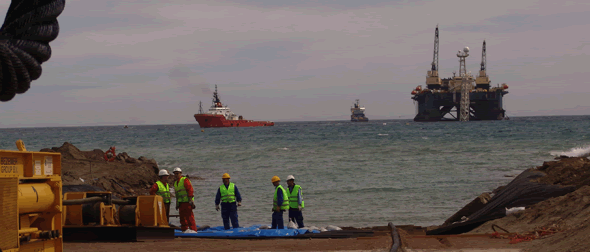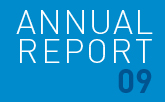The Open Season begun in 2009 to analyse existing demand for the medium-term usage of the Larrau and Irún/Biriatou pipelines in both directions concluded with the decision to expand only the Larrau connection. A decision taken on the French side which does not pursue the path of maximising clearly inadequate international connections.
Along with the strengthening of gas interconnections, regulatory harmonisation is another of the cornerstones of supply security in the European Union. Approval of the 3rd Gas Directive, the Regulations on conditions for access to natural gas transport networks and the Regulation creating the Agency for the Cooperation of Energy Regulators (which came into force on 3 September 2009, although European governments have 18 months to transpose these regulations into their national legislation, despite the fact that the Regulations become automatically enforceable upon publication in the Official Journal of the EU), will underpin the creation of a single, more consistent market with less real difference in its implementation in the various countries of the Union.
On 13 July 2009 an intergovernmental agreement was signed in Ankara by the leaders of the Austrian, Bulgarian, Hungarian, Romanian and Turkish governments for approval of construction of the Nabucco project. The event was attended by top-level representatives from the European Commission, Iraq and Georgia. As is known, this pipeline has received substantial support from the European Union, with the aim of realising the goal of achieving greater diversification of suppliers to Europe. The final investment decision has not, however, yet been taken.
The Nord Stream project is also making progress, having received environmental approval from a number of countries through whose territorial waters it will have to pass. The final investment decision is likewise pending.
- Norway
- Russian Fed.
- Algeria
- Libya
- Oman
- Qatar
- Egypt
- Nigeria
- Trinidad & Tobago
- Equatorial Guinea
- Others
- TOTAL
- Distribution
- 85,15
- 121,13
- 32,73
- 9,20
- 0,00
- 0,00
- 0,00
- 0,00
- 0,00
- 0,00
- 5,18
- 253,39
- 83,5%
- 1,38
- 0,00
- 15,13
- 0,53
- 0,17
- 7,89
- 6,29
- 13,65
- 5,03
- 0,08
- 0,00
- 50,15
- 16,5%
- 86,53
- 121,13
- 47,86
- 9,73
- 0,17
- 7,89
- 6,29
- 13,65
- 5,03
- 0,08
- 5,18
- 303,54
- 100,0%

Advance data published by Eurogas suggest that domestic output within the territory of the European Union fell by 10% in 2009 compared with the figure for 2008, a downturn brought about by the reduction in demand.
The greatest share of total natural gas supply in the EU comes from domestic output, meeting 37% of the EU's gas needs during 2009. The main supply country in 2009 was Russia, which satisfied 23% of total needs, followed by Norway (19%) and Algeria, which supplied 10% of the gas demand registered by the EU in 2009.

-
 ENDESA
ENDESA

